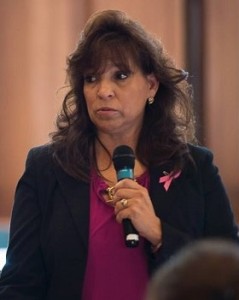Our Issues
Women & the Workplace: Ensure that the workforce properly supports women & the needs of their families
North Carolina does not provide or require Temporary Disability Insurance statewide, paid leave for the Family Medical Leave Act, or paid sick days
– More than 40% of private sector NC workers have no paid sick days
– Nationally, 51% of working women and 63% of single moms are discouraged or prohibited from discussing pay at work
Economic Security: Ensure women earn a fair & equal wage in their workforce
– North Carolina women earn 83.3 cents for every dollar earned by men
– North Carolina women earn less than men at every education level, while nearly 1 in 5 women in our state live in poverty
– At the current rate, North Carolina women will not have equal pay until 2064
Childcare: Increase the availability, quality & affordability of childcare and early education programs for optimal childhood development
– All-day infant care costs an average of $9,100 per year, which equates to over a quarter (26%) of North Carolina women’s average yearly income
– Only 34% of North Carolina’s 4-year-olds are enrolled in state Pre-K, preschool special education, and state and federal Head Start
– Of the nearly 425,000 North Carolina families eligible for the Child Care & Development Fund, only 17.6% of children are served
Education: Improve the quality of K-12 education & cost of post-secondary education
 – North Carolina legislature continues to slash public school funding, including: 78% of school textbook budgets, 100% of school technology budgets, and 100% of staff development programs
– North Carolina legislature continues to slash public school funding, including: 78% of school textbook budgets, 100% of school technology budgets, and 100% of staff development programs
– 13.3% of North Carolina women have less than a high school diploma
– The average North Carolina student owes $24,319 in student loan debt after attending a public, 4-year university
Healthcare & Health Services: Optimize the accessibility & quality of women’s healthcare for the entirety of their lives
– 20.9% of North Carolina women ages 18-54 lack health insurance
– 32.2% of women living in poverty in North Carolina are living without health insurance
– 14.7% of North Carolina women live with a person with a disability
Leadership: Increase women’s access to & participation in leadership at all levels of their community
 – Women make up nearly 50% of North Carolina’s workforce but hold only 40% managerial positions and professional jobs
– Women make up nearly 50% of North Carolina’s workforce but hold only 40% managerial positions and professional jobs
– Women hold less than a quarter of appointed offices in North Carolina
– North Carolina remains one of only 15 states that refuses to ratify the Equal Rights Amendment (ERA)
Voting: Increase women’s engagement at all levels of the election process
– Over 70% of North Carolina’s women are registered to vote, but in the last election only 50% of those women voted
– Because of new voter ID laws nearly over 200,000 North Carolina’s women will be unable to vote
– At our current rate, women will not see equal government representation until the next century



